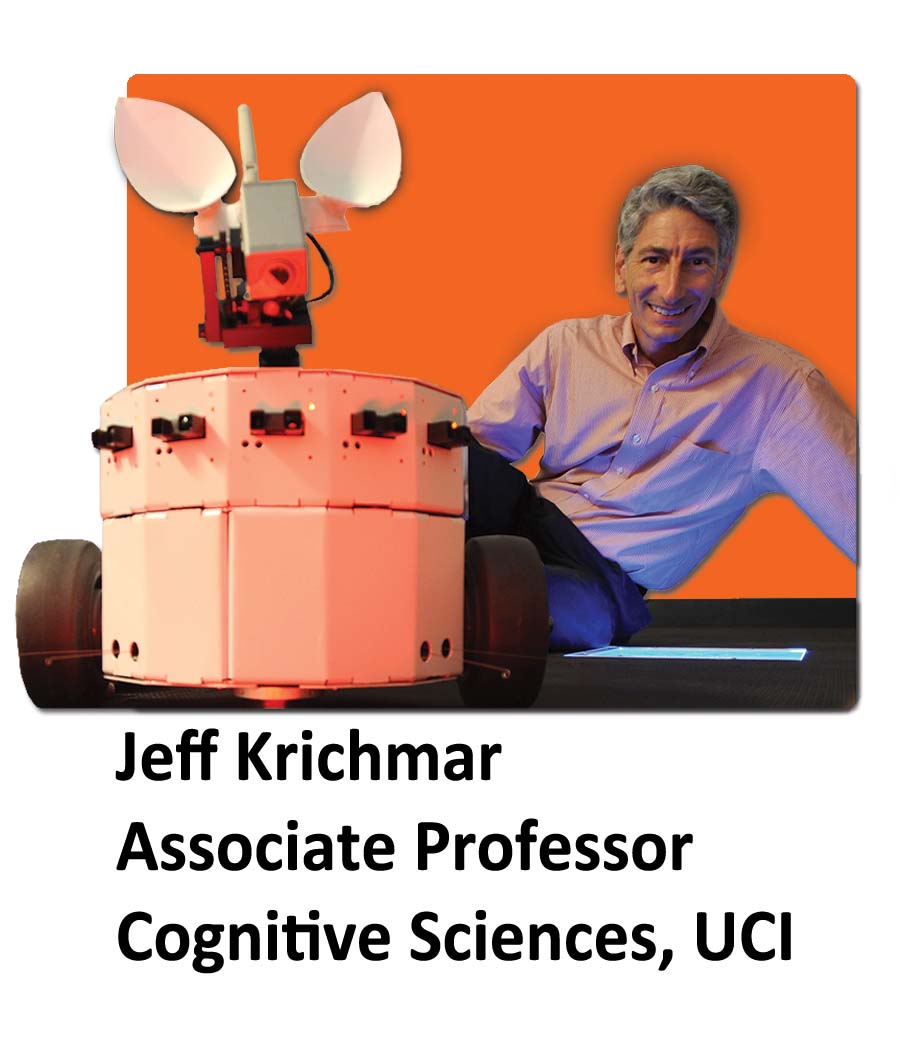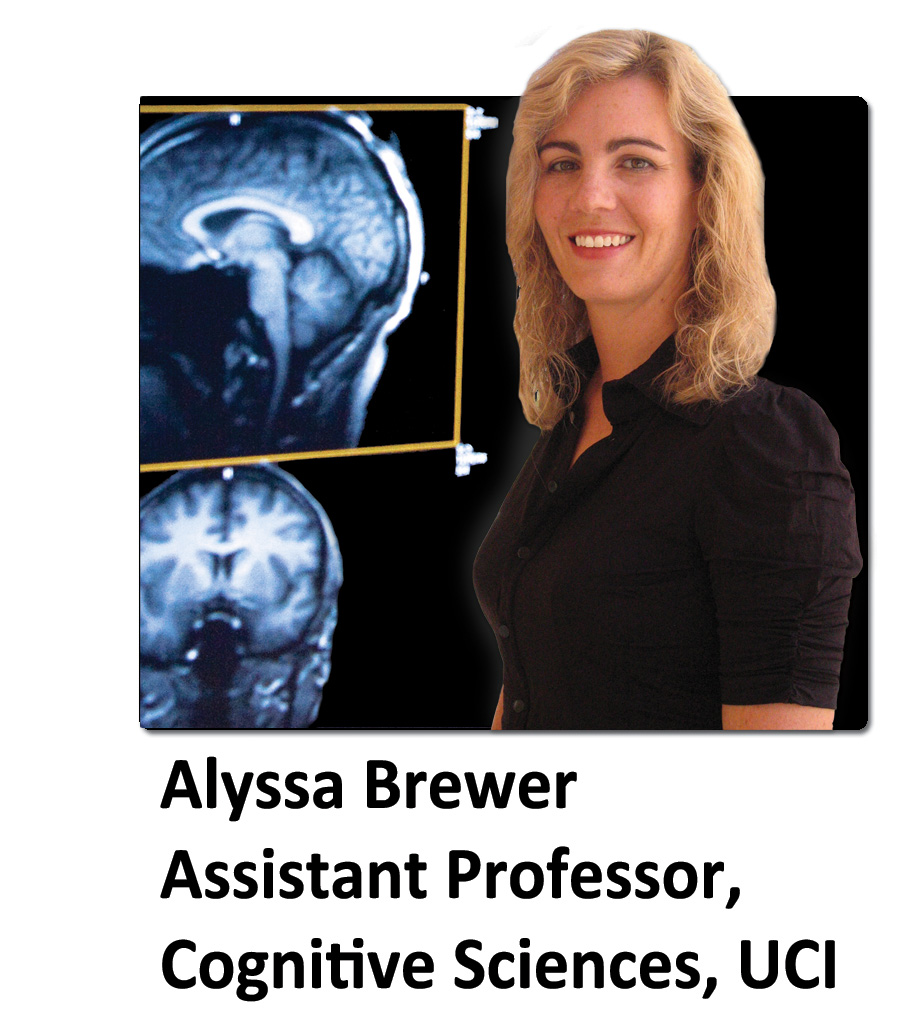UCI cognitive scientists explore new frontiers in mind, brain and behavior research
The School of Social Sciences Expert Speaker Series presents:
“Changing Perceptions, Making Connections: UCI Cognitive Scientists Explore New Frontiers
in Mind, Brain and Behavior Research"
featuring Alyssa Brewer, Assistant Professor, Cognitive Sciences, UCI
Jeff Krichmar, Associate Professor, Cognitive Sciences, UCI
February 4, 2010
7:00 - 9:00 p.m.
Social and Behavioral Sciences Gateway, Room 1517 (bldg 214 on campus map)
You'll meet CARL, a robot designed to think and act like a  human being. He can walk, nod his head, and, when his curiosity gets the best of him,
wander around a disco floor chasing moving lights. His steel-encased body is full
of cameras, microphones and feelers that allow cognitive scientist Jeff Krichmar to
simulate a living, thinking and learning being. CARL’s software engineered brain consists
of a computer network equivalent to more than 50,000 neurons and nearly two million
connections between neurons, a smaller yet quite complex replica of the 30 billion
neurons and 1 million billion synaptic connections present in human brains.
human being. He can walk, nod his head, and, when his curiosity gets the best of him,
wander around a disco floor chasing moving lights. His steel-encased body is full
of cameras, microphones and feelers that allow cognitive scientist Jeff Krichmar to
simulate a living, thinking and learning being. CARL’s software engineered brain consists
of a computer network equivalent to more than 50,000 neurons and nearly two million
connections between neurons, a smaller yet quite complex replica of the 30 billion
neurons and 1 million billion synaptic connections present in human brains.
Learn how CARL is helping Krichmar get an inside look at how neural connections impact our behavior when we feel happy, scared, sad and surprised. Click here for a sneak peek of CARL in action!
People generally wear glasses in order to see more clearly,  but cognitive scientist Alyssa Brewer is looking for quite the opposite effect through
the lenses of her lab’s left-right reversing prism goggles. The specially designed
spectacles give those who don them a new perspective of the world – one in which everything
appears in reverse. For 14 days and nights, UCI grad student Ling Lin wore the glasses
and learned first hand what it’s like to see and experience the world in reverse.
Others learned just how tough performing everyday tasks can be when left is right
and right is left - watch! During the experiment, Brewer used fMRI to monitor how long it took Lin’s brain to
adapt to a mirror image version of reality - a real-life issue for those with damage
or disorders of the brain in which there is lack of attention to or awareness of one
side of space.
but cognitive scientist Alyssa Brewer is looking for quite the opposite effect through
the lenses of her lab’s left-right reversing prism goggles. The specially designed
spectacles give those who don them a new perspective of the world – one in which everything
appears in reverse. For 14 days and nights, UCI grad student Ling Lin wore the glasses
and learned first hand what it’s like to see and experience the world in reverse.
Others learned just how tough performing everyday tasks can be when left is right
and right is left - watch! During the experiment, Brewer used fMRI to monitor how long it took Lin’s brain to
adapt to a mirror image version of reality - a real-life issue for those with damage
or disorders of the brain in which there is lack of attention to or awareness of one
side of space.
Learn what Brewer discovered and how her findings may be used to develop better training to help those with disorders regain some of their depleted vision.
The Social Sciences Expert Speaker Series is free and open to the public. Please RSVP
to Rosemarie Swatez, rswatez@uci.edu or 949.824.2511.
--Krichmar photo by Daniel Anderson, UCI Communications


connect with us